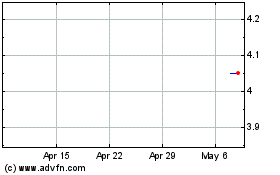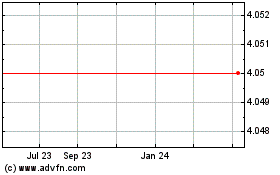Papua New Guinea's New Prime Minister Seeks More Control Over Resources
30 May 2019 - 5:05PM
Dow Jones News
By Rhiannon Hoyle and Rachel Pannett
SYDNEY--Papua New Guinea, an impoverished South Pacific nation
that joined the ranks of the world's significant energy exporters
five years ago, installed a new prime minister who has called for
greater local control of resources, in a move that may upset a gas
deal with international energy giants.
The new prime minister, James Marape, was elected by lawmakers
on Thursday to succeed Peter O'Neill, who led the resource-rich
nation for seven years and stepped down this week amid intensifying
political unrest and government defections.
Mr. O'Neill had come under intense pressure in recent weeks over
a plan the government agreed to in April with French oil major
Total SA, U.S. petroleum giant Exxon Mobil Corp. and Australia's
Oil Search Ltd. The multibillion-dollar project is part of a
broader industry expansion aimed at doubling Papua New Guinea's
liquefied natural gas exports to help meet surging global demand.
Local communities in the country's highlands have questioned
projected revenues and employment guarantees.
"I think we will certainly see the project agreements be
reviewed and the process slowed a bit" following the change of
leadership, said Jonathan Pryke, a Pacific expert at Sydney's Lowy
Institute. Still, he added that while Mr. Marape has been critical
of the way the former prime minister managed the negotiation
process, "I don't think he is hostile towards the sector or the
project as a whole."
Mr. Marape defected from Mr. O'Neill's government and resigned
from his post as finance minister in April, days after the Total
deal was signed, citing differences with Mr. O'Neill over natural
resources policy. Mr. Marape said at the time that he wanted "more
local content participation in our gas, oil sector or mining
industry."
"We will look into maximizing gain from what God has given this
country--from our natural resources," he said on Thursday. "I have
every right to tweak and turn resources laws for my country."
The change of leadership could delay production by roughly two
years, to beyond 2025, consulting firm Wood Mackenzie said. The
Total-led Papua LNG gas export plan and a separate expansion of an
existing Exxon Mobil-led project are awaiting final investment
decisions from the companies, and could also be deferred in favor
of developments elsewhere. Total and Exxon couldn't immediately be
reached for comment.
When Papua New Guinea signed its first big gas deal a decade
ago, the government was betting on a revenue windfall it hoped
would transform the nation better known for jungles, violence and
corruption.
But the payday from the existing $19 billion Exxon Mobil-led
project, which started operating in 2014, has so far been a
trickle. That project was crimped by a downturn in gas prices that
allowed Exxon and its partners to claim losses against royalty
payments, fueling anger among residents over whether they were
receiving a fair share of the country's resources wealth.
Governments of many developing nations rich in resources are
pressing companies for a greater share of the wealth to plug budget
deficits, via higher taxes and demand for greater stakes in mines
and fields.
A former Australian colony of eight million, Papua New Guinea
has long relied on foreign aid. The country has minimal
infrastructure outside the capital, Port Moresby, and companies
typically negotiate terms with local landowners to gain access to
resources--a knotty problem in a country with hundreds of ethnic
groups.
Despite its resource wealth, Papua New Guinea is still one of
the world's least-developed nations. Gross domestic product per
capita was just $2,745 in 2015, according to the International
Monetary Fund. Many residents lack electricity and running water.
The more affluent live behind high fences, protected by armed
guards. An earthquake last year left thousands homeless.
The country is also battling health crises, including one of the
world's highest rates of tuberculosis. In June, health authorities
declared the country's first polio outbreak in 18 years.
To bridge the revenue gap and revive its slowing economy, Mr.
O'Neill's government had increasingly turned to China for low-cost
loans to fund infrastructure and other construction projects. Mr.
O'Neill said on Sunday that he would stand down ahead of a planned
no-confidence vote by opposition lawmakers.
"It will be interesting to see how Marape moves to differ
himself from O'Neill," said the Lowy Institute's Mr. Pryke. After
Mr. O'Neill stepped aside, Mr. Marape brought his supporters back
to the ruling coalition, which likely means "a lot of familiar
faces" in senior government positions, he added.
Robb M. Stewart Contributed to this article.
(END) Dow Jones Newswires
May 30, 2019 02:50 ET (06:50 GMT)
Copyright (c) 2019 Dow Jones & Company, Inc.
Oil Search (ASX:OSH)
Historical Stock Chart
From Jan 2025 to Feb 2025

Oil Search (ASX:OSH)
Historical Stock Chart
From Feb 2024 to Feb 2025
